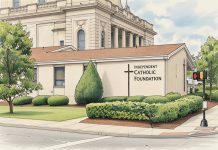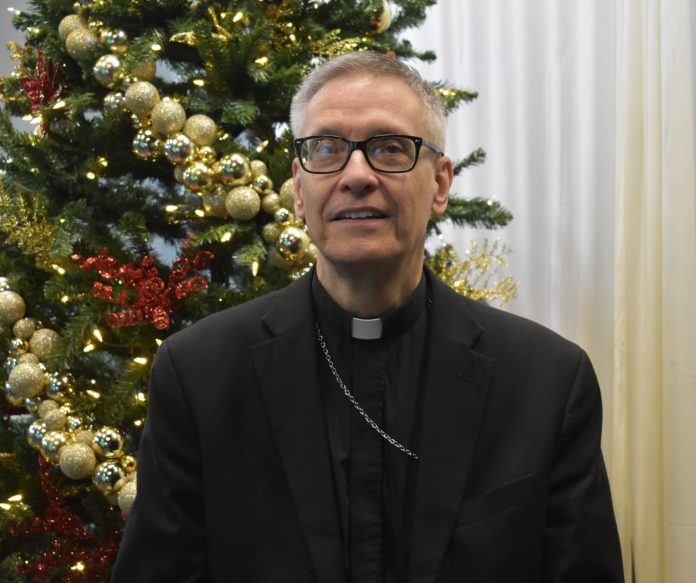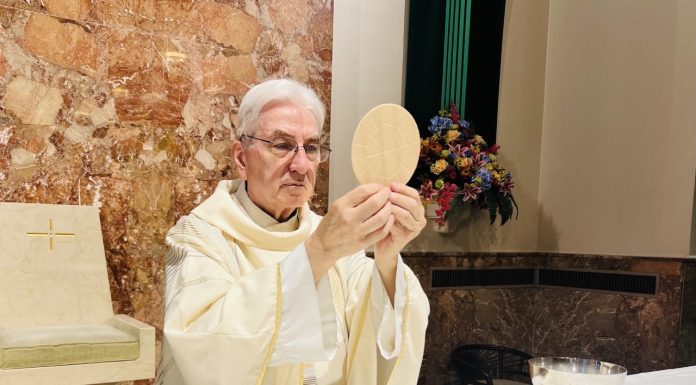By Bishop Mark
People often observe that Christmas makes people nostalgic. I read a story online which began, “God knows we need something whimsical these days.” The author then describes how Christmas reminds her of her grandmother and what a wonderful cook she was. The description includes a detailed account of how every holiday dinner, whether Christmas, Easter, or Thanksgiving, was better than the last one. Grandma always responded, “Well, it’s not as good as the last one I made.”
Grandma’s annual litany was “Easter wasn’t as good as Christmas, and Christmas wasn’t as good as Thanksgiving, and Thanksgiving wasn’t as good as the last birthday in the family, and the last birthday wasn’t as good as last Easter.” The author ended with this bit of humor: “We used to say that we wished we had had a taste of Grandma’s first meal, because every one of them had been downhill since then!”
So much for nostalgic thoughts and sentiments! Webster’s Dictionary describes nostalgia as “feeling or inspiring nostalgia: such as a longing for or thinking fondly of a past time or condition.” I recently read an article by a psychologist who explains the word nostalgia originally had to do with homesickness. The same author observes that nostalgia can motivate us to remember the past in our own life, which helps to unite us to that authentic self and remind us of who we have been and then compare that to who we are today. This feeling of nostalgia can give us a sense of who we want to be in the future. The other way that nostalgia serves an essential psychological function is that it is a highly social emotion. It helps connect us to other people and it helps to keep alive our memory of them.
The description of the birth of our Savior in the Gospels of Matthew and Luke is full of nostalgic images that allow us to enter into the mystery of the Incarnation of the Lord Jesus. There is something so clear and simple about images of Joseph and Mary’s journey to Bethlehem, where there was nothing like Grandma’s Christmas dinner waiting for them. The description of angels appearing to shepherds and singing Hosannah; the baby Jesus lying in the manger; and the calm and the joy that are described by Matthew and Luke are among the best of the best of nostalgic experiences that draw us into the experience of the Incarnation of our Savior Jesus Christ.
But there is more that cannot be matched by any nostalgic memory or feeling. Unlike Grandma’s humility about the quality of this year’s Christmas dinner at her dining room table, our response should be one of profound joy and thanksgiving to God, Who draws us into the mystery of the Incarnation. The Lord invites us to prepare the way of the Lord through prayer and, especially, the sacraments of Penance and the Holy Eucharist. The same Christ Whose birth we celebrate is eager for all of us to return to the Lord and reconnect with Him with prayer and thanksgiving. Don’t forget to thank Him (and Grandma) — and do it with great joy!































